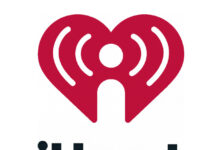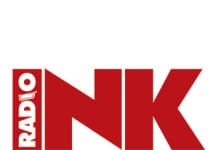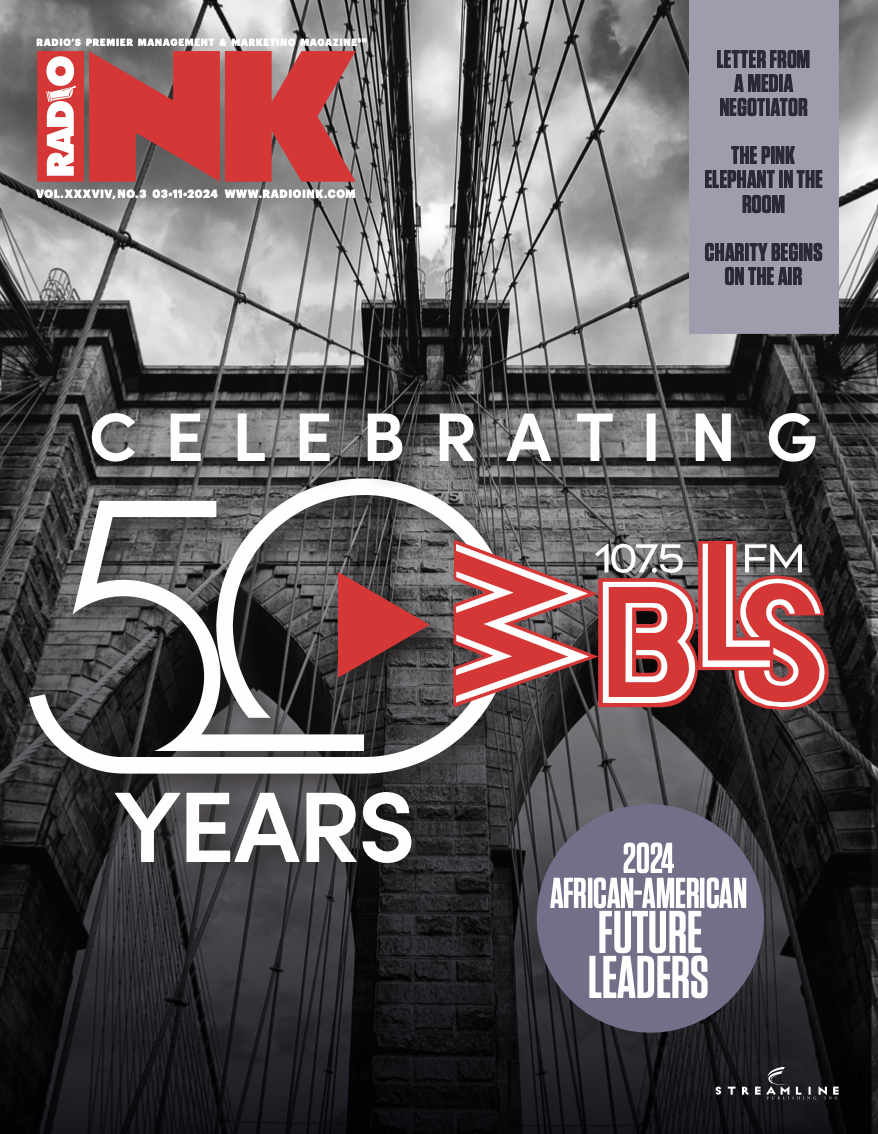
iHeartMedia CEO Bob Pittman has been on our power list for six years. All six of those years he’s been number one. Why has Bob Pittman been good for radio? To help answer that question, we asked David Zaslav, CEO of Discovery Communications. “Over the 30 years that I’ve known Bob in this business, his unique vision has been like a beam of light into the future,” Zaslav says. “At MTV, at AOL, at Clear Channel, with iHeart, he has a sage understanding of where the world is going and how consumers will consume content in the future. This unparalleled vision, his talent, and his heart have made him one of this generation’s greatest visionaries and media pioneers. He’s a true renaissance man — and a great person and friend.”
We also asked the CEO of GOOP, Lisa Gersh. “In 2011, before Bob took the reins at what was then Clear Channel, no one in the media and advertising industries was talking about the power of radio and the effectiveness of radio as an unparalleled reach medium,” says Gersh. “Bob changed all that. He restructured the company to make the power of its reach shine, rebranded it to better reflect its multi-platform assets and its position as a major media and entertainment company, and turned a disaggregated group of 850 radio stations into a powerful, multi-platform, digital media and entertainment powerhouse.
“And today, the advertising, media, and artist communities look to iHeart for innovation, partnership, and creative thinking. Cable TV was never the same after Bob kick-started it with MTV — and radio won’t be either.”
Bob Pittman has made a positive impact on the power of radio. He’s put the power of an 860-station gorilla behind that effort. The fact is that when Pittman talks about radio, the right people listen — the people who have power to spend are sitting on the other side of that discussion, be it at Cannes, in iHeart’s New York City offices, or on Madison Avenue. Business channels want to interview him whenever they can, conference organizers call up hoping to get him as a speaker, and, most importantly, big-name advertisers will clear their day-planners if he wants to visit. And what has he said consistently to everyone who will listen? “Radio is undervalued. It has been undervalued for years. Here’s the data to prove my point.”

Under Pittman’s leadership iHeartMedia has made serious strides in promoting and selling the radio industry to the advertising community. And the company is not afraid to spend money to produce data for the entire industry to use. Yes, we know about the debt. Yes, we know about the disgruntled bondholders. Yes, there have been layoffs, and we are aware that the future of the company is unknown. And yes, we know there are many inside the industry who believe it’s iHeartRadio versus the rest of us. We know all that. The facts are the facts. Bob Pittman and iHeartRadio have almost twice as many radio stations as any other company.
Bob Pittman and iHeartRadio generate over a billion dollars more in revenue than the second-highest-billing company. And Bob Pittman and iHeartRadio control the careers of many thousands of employees in the radio industry. Additionally, iHeartMedia owns the largest network in the industry and the number one rep firm.
Here is our special interview with the most powerful person in radio today.
Radio Ink: What are you most proud of about your company?
Pittman: I’m most proud of the fact that we’ve used our assets and our scale for the benefit not only of our company, but for the entire radio industry. We invested $20 million in legal costs to help fight for the right rate structure for digital music rights, and I think we have an outcome that can provide a sustainable marketplace for us in the radio business, for our friends at the music companies, and for artists as well. I’m pleased with the progress we’ve made on programmatic and data-infused buying, which is clearly the future of our industry; and if we’re successful it will allow the radio industry to begin participating in the $70 billion of digital ad revenue instead of just the $17 billion of radio ad revenue. I think it also allows us to better serve our listeners and the communities in which we operate. In addition to building a platform for iHeartMedia, we also built one for the radio business through Katz. It’s taken an enormous part of our focus and the brilliance of many people in our organization, as well as $40 million in costs so far. Are both areas expensive? Yes. Are both important? Absolutely. And our ability to work for the benefit of the entire radio industry makes both iHeartMedia and the entire industry stronger. We believe in partnerships, and we brought Dan Mason in as an adviser to me and Rich [Bressler]. Having someone of Dan’s intelligence, experience, and personal relationships is a critical piece of making sure that whatever we do builds the radio business, which we think is the best way to build our own company.
of digital ad revenue instead of just the $17 billion of radio ad revenue. I think it also allows us to better serve our listeners and the communities in which we operate. In addition to building a platform for iHeartMedia, we also built one for the radio business through Katz. It’s taken an enormous part of our focus and the brilliance of many people in our organization, as well as $40 million in costs so far. Are both areas expensive? Yes. Are both important? Absolutely. And our ability to work for the benefit of the entire radio industry makes both iHeartMedia and the entire industry stronger. We believe in partnerships, and we brought Dan Mason in as an adviser to me and Rich [Bressler]. Having someone of Dan’s intelligence, experience, and personal relationships is a critical piece of making sure that whatever we do builds the radio business, which we think is the best way to build our own company.
Radio Ink: How do you see the future of radio, and what is your advice for strengthening that future?
Pittman: The future of radio is bright because what we fundamentally offer consumers is companionship, and that is always of value — and maybe of even more value now in this fragmented and complicated world. Where other media like TV have seen a decline because of technology, we think technology enables radio to be an even better companion. Our world-class and iconic personalities can now reach consumers almost anywhere they are — not only via AM/FM and satellite radio, but digital delivery via smartphones, gaming consoles, tablets, and enhanced auto dashes. Additionally, we’ve moved from very limited dialogues over the telephone to enormous omnilogues using social media. Listeners not only talk to us, they talk to their friends about us, which is one reason the iHeartRadio Music Awards garnered 115 billion social impressions in the U.S. alone, compared to 40 billion by the Academy Awards and 30 million by the Grammys.
Why do we have such a lead? Because listeners talk to us for companionship and talk to us and about us using social media. Social media is the new telephone — and radio was the original social medium.
Radio Ink: What impresses you most about the next generation of leaders now coming up in the ranks within your organization? What would you like to tell them about leadership and responsibility?
Pittman: I’m impressed with our new leaders because they’re instinctively savvy about today’s technology and social media. They also have a commitment to listeners using these new tools in ways people my age only know as a learned experience, not an intuitive one. They embrace values we think of as our core values for success — collaboration, curiosity, the desire and ability to listen to dissent to find the best ideas, our willingness to accept mistakes as a byproduct of innovation, our respect for people and ideas at every level of our organization, our willingness to fail fast in pursuit  of breakthrough ideas, and our belief that urgency wins — that everything is better done sooner. My advice would be the same advice my dad always gave me about the Golden Rule: Treat everyone as you’d want them to treat you.
of breakthrough ideas, and our belief that urgency wins — that everything is better done sooner. My advice would be the same advice my dad always gave me about the Golden Rule: Treat everyone as you’d want them to treat you.
Radio Ink: What have you been doing to advance the industry in the minds of advertisers and agencies?
Pittman: I’d break it into two categories. One is relationships and telling our story to people at a level who can change rules and change radio’s place in the marketing equation — to continue to meet with heads of agencies and brands, CEOs, CMOs, in one-on-ones, at major advertising conventions, the Consumer Electronics Show, and even internationally at the Cannes Lions International Festival of Creativity. And we understand we have to do that every day, every week, every month, and every year; there’s no silver bullet. The second part is to do business the way the advertising industry does business today: data-rich, automated in many cases, and part of a mix that delivers superior ROI. Radio is an industry in transition from the old way of doing business to this new way, and making this transition is essential to our success. We’re committed to it at every level of this organization.
Radio Ink: What can everyone reading this issue do to better advance the industry?
Pittman: I think we do better by committing ourselves to leading the media industry, not following; to commit ourselves to constant change and upgrade of what we do; to commit to deliver results, not just follow processes done over and over again; and finally, a commitment from all of us to work together as one industry even though we compete with each other day-to-day on certain issues and opportunities. As an industry, we will win together.
To subscribe to Radio Ink Magazine in time to receive our 2016 issue of The Most Powerful People in Radio call Sue Henry today at 561-655-8778.







Ha Ha…couldn’t agree more with Sal’s comments above. When iHeart was only $16,000,000,000 in debt in 2013 I figured that Bob’s (alleged) plan of selling off the majority of the under performing 850 radio stations to partially service the debt would happen before 2015. That didn’t take place and the dream of making iHeart a ‘golden parachute’ may have now tik-toked into oblivion. I predict that the king will effectively receive the equivalent of about $1,000,000 per iHeart employee that is cut adrift in the upcoming months. 900 employees out of a job = $900,000,000 for their ‘leader’. Why do people follow the emperor that wears no clothes? Let’s hope that just like an old LP, what comes around goes around.
What a suck up fluff story this is! Why is this guy always profiled and worshipped like some sort of demi-god? And if I read that he founded MTV one more time, I’m going to barf. Bob Pittman is the biggest fraud, charlatan in US business history. Since he took over at Clear Channel/iHeart 6 years ago, the company has NEVER had a profitable quarter and has lost more than $5 billion collectively under Pittman’s regime. iHeart’s overall debt has ballooned to $21 billion, positions have been eliminated at the local level while dozens of concocted “VP Positions” have been created at the corporate level. Morale is at an all-time low at local stations. You see, local.stations have been cutting to the core while Pittman wastes money. They installed mist tunnels at the Corporate HQ and Pittman flies all over the world in the corporate jet – like to get high at Burning Man and to hob-knob with the rich & famous on the French Riviera. Meanwhile, back at home at the individual.stations, they have been told to cut, cut, cut. They have no money to make the stations work effectively, but Pittman has money to waste on lavish perks. Remember, over $5 billion in total losses during his renure and $21 billion of debt on the books. Pittman is plundering the company coffers and should be in jail. Yet, publications like this continue to kiss his butt and bow at his alter. Why don’t you investigate what he has REALLY done and then print a story on that. Look at the publicly avaiable balance sheets of CC/iHeart over the past 6 years, analyze them and then print what Pittman has really done for the company and the industry. Enough with these recycled, tired fluff pieces for a disasterous businessman. By the way, also print what Pittman did for the AOL-TimeWarner deal.and Six Flags. Pittman should be sharing a cell with Bernie Madoff right now.